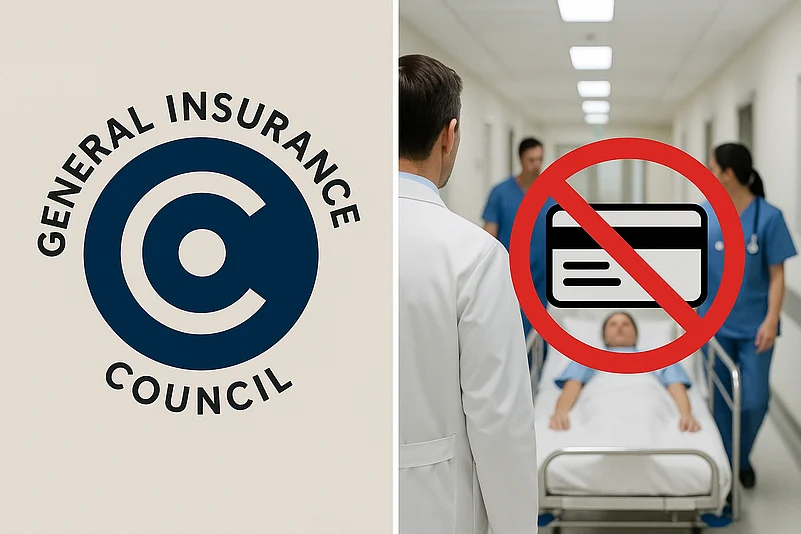
Summary of this article
GIC criticises AHPI’s advisory to stop cashless admission for Bajaj Allianz, Care.
Sudden move creates confusion, hurting policyholders relying on cashless health insurance.
In 2023–24, insurers settled claims worth Rs 87,000 crore to support patients.
GIC urges dialogue, stressing cashless healthcare is vital for financial protection.

Summary of this article
The General Insurance Council (GIC) has hit out at the Association of Healthcare Providers (India) for advising hospitals to stop cashless admission for customers of Bajaj Allianz General Insurance and Care Health Insurance from September 1, according to a recent press statement issued by GIC. The industry body described the move as sudden, one-sided, and damaging for patients who depend on cashless facilities during hospitalisation.
AHPI had issued its advisory on August 22, sparking concerns among patients and insurers alike. According to GIC, the announcement was made without adequate discussion or clarity, creating confusion among policyholders who depend on cashless treatment facilities during hospitalisation.
“The sudden decision undermines public trust in the health insurance system,” GIC said, warning that such a disruption could place families under heavy financial strain. It also highlighted that patients in emergencies may be forced to arrange money upfront, a situation that could threaten lives.
What The Council Had To Say
The council underlined that the insurance industry has worked for years to expand access to affordable healthcare. Initiatives such as the “Cashless Everywhere” programme and the National Health Claims Exchange (NHCX) were specifically designed to allow policyholders to receive treatment at any hospital without financial stress. In 2023–24 alone, insurers settled health claims worth more than Rs 87,000 crore, a figure the industry cites as proof of its commitment to supporting citizens.
GIC emphasised that cashless access is critical for patients and their families, especially during serious medical emergencies. “Any disruption to this service goes against the collective responsibility of the healthcare ecosystem to protect lives and maintain the reliability of health insurance as a safety net,” the statement said.
The council also noted that targeting individual insurers sets a damaging precedent for the wider health insurance market, as millions of Indians rely on policies for financial protection and timely access to treatment.
Calling the AHPI directive “unilateral,” GIC urged the hospital association to withdraw its advisory and return to the table for dialogue with insurers. It appealed for a collaborative approach, stressing that the shared goal of all stakeholders should be to build a stronger healthcare system where no citizen is denied quality treatment because of financial uncertainty.













